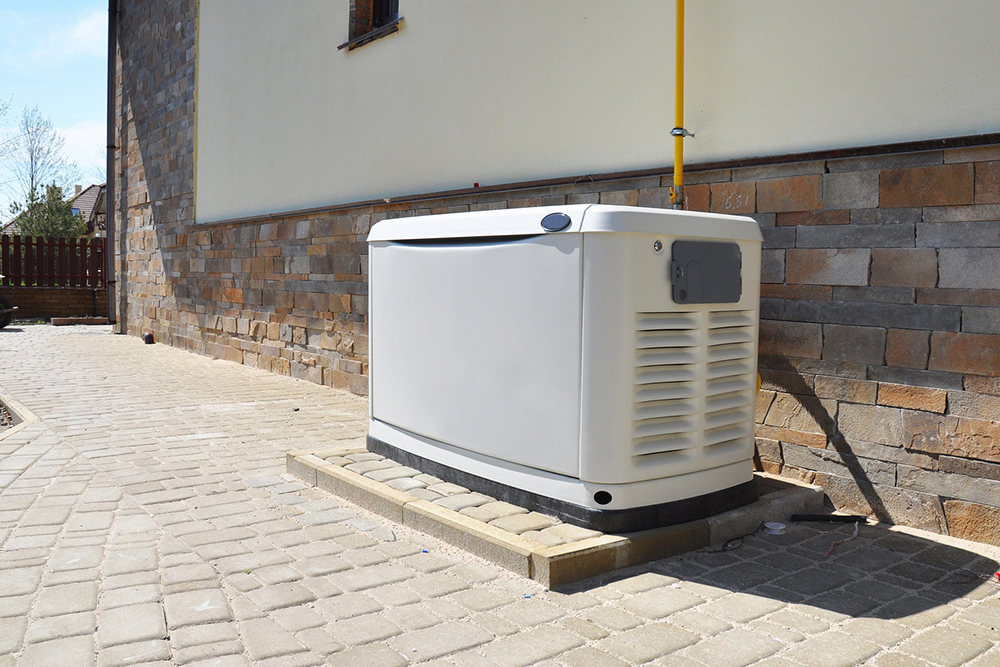9 Tips to Consider When Buying a Power Generator
Nowadays, most daily activities, from cooking to working and doing household chores , rely on electricity . So, having electricity backups is essential to ensure that these activities continue even in case of an outage. Power generators are useful appliances in such cases, as they act as electricity reserves. These days, advanced power generators are available in different sizes and electrical configurations.

Tips for buying an electric generator
1. Det ermine personal requirements
A generator may be used in various situations, and there are different types of generators that can fulfil each of them. So, understanding one’s personal requirements is essential for determining what type of generator would be the ideal choice. For example, some people buy generators solely to power their homes during power outages, while others may want to carry their generators along on road trips or RV camping sites. So, the first step is to identify one’s generator needs and where the generator would typically be used.
2. Check out the different types of power generators available
As mentioned earlier, different types of power generators are available, each fulfilling a certain requirement. Portable power generators, home standby generators, solar generators, and inverter generators are some of the many types one can choose from. When planning to buy a generator, one should research the different types available and shortlist the one that best fulfils one’s needs. A solar generator will be feasible for those with limited electricity needs, while a portable generator will be suitable for those who travel extensively.
3. Check the type of fuel used by the generator
Power generators may have various fuel sources — gasoline, diesel, propane, solar, and natural gas. One should not only check out the type of fuel the generator utilizes but also the pros, cons and cost of each. For example, if one is environmentally conscious and prioritizes sustainability, it’s best to opt for a solar-powered generator as opposed to a gasoline or diesel one. Similarly, when buying standby generators, one should opt for gasoline models if they can store fresh gasoline at home and change it occasionally. This is because gasoline has a shelf life, and finding fresh gasoline during a power outage is usually quite difficult. So, when opting for generators to power homes, it’s important to understand such minute details about different fuel types beforehand.
4. Set a budget range
Buying a generator is a major expenditure, and the cost may vary based on the brand, type of generator, and other factors. Setting a budget limit helps one buy a generator of good quality but within one’s means. Also, conducting market research to check out the average price of a specific type of generator can be a helpful step in scoring a good deal. After this, one should gauge one’s purchasing power based on factors like current income, savings, and any chances of a salary hike or bonus and determine the total budget. Without a set budget, one might face a financial crunch when trying to buy a generator. In that case, one can try to buy a generator in instalments.
5. Compare different brands and products
In order to find the best power generator on the market, thoroughly compare the products from various brands as well as different models of the same brand. This comparison can help make an informed decision and select the most suitable generator for one’s needs. So, it’s important to compare the features and prices of the top power generators available and the reputation of the brands offering them. One should also speak to family members, friends, and neighbours about the generator brand and product they would recommend. Reading online reviews of products and brands also helps make the right decision. In general , even the most basic generator may cost at least 60,000 Naira.
6. Check the warranty period of the generator
A power generator should be covered by a good warranty plan because it is an expensive product, and the added maintenance and repair costs could increase the amount one spends on it. Generator companies should offer a warranty of at least a year on the product and cover different types of possible damages and product defects.
7. Understand the safety considerations
Generators can become hazardous if they are mishandled. So, it is essential to use them correctly and follow all the recommended safety precautions. To ensure safety, one should read the owner manual carefully before buying a power generator. A fuel stabilizer should be used when storing gas for long periods, and the generator should never be refilled while it is still hot. Also, the generator should be kept at least five feet away from surrounding surfaces. Such safety measures can potentially prevent accidents.
8. Factor in the total cost
It’s not enough to make the purchase decision based solely on the market price of a power generator. One should also consider its installation and maintenance costs , as well as any other overhead expenses, so one has a fair idea about the aggregate cost. Based on this evaluation, one should be financially prepared to buy and install the generator.
9. Know the essential features
Some key features like automatic SO shutoff, electric start, and fuel gauge are crucial for the efficient functioning of a power generator. So, before buying one, thoroughly research and look for generators that are equipped with these essential specifications.











